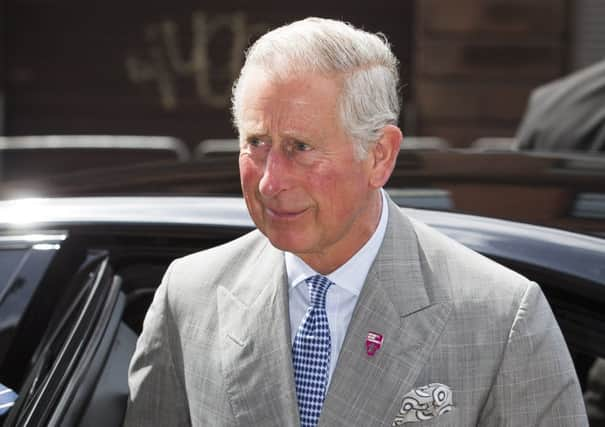Prince Charles defends latest letters to ministers


Six letters written by Charles published by the Government will throw further light on his dealings with ministers.
The topics covered by the letters, written between 2007 and 2009, range from hospital food to affordable rural housing and climate change.
Advertisement
Hide AdAdvertisement
Hide AdClarence House said in a statement that the correspondence showed “the range of the Prince of Wales’ concerns and interests for this country and the wider world”.
The statement added “The letters published by the Government show the Prince of Wales expressing concern about issues that he has raised in public, like affordable rural housing, the quality of hospital food, the preservation and regeneration of historic buildings, an integrated approach to healthcare, climate change, and others.
“In all these cases, the Prince of Wales is raising issues of public concern, and trying to find practical ways to address the issues.”
In one letter, released today almost exactly six years after it was sent to then-Culture Secretary Ben Bradshaw, Charles asks the Labour MP to get in touch and “discuss various heritage matters”.
The letter, dated 16 June 2009, came a week after the Exeter MP became Secretary of State for Culture, Media and Sport. In it, Charles briefly detailed his concerns about “major historic sites, many of which are lying derelict”.
He also hit out at “unscrupulous owners” for abandoning certain unnamed sites.
He wrote: “My Regeneration Trust has worked for many years now to help initiate such schemes and my experience has invariably been that they are a great success.
“As many of these historic sites are often in fairly deprived areas, their revitalization can make a big difference. Not only that, but I do feel we owe it to those dedicated craftsmen who built the buildings in the first place, and many of whose descendants probably still live in the area, to bring their dedicated workmanship back to life.”
Advertisement
Hide AdAdvertisement
Hide AdA Clarence House spokesman described the Prince of Wales as “a passionate believer in the role of historic buildings”, and noted that The Prince’s Regeneration Trust existed to find new uses for derelict buildings or those at risk of becoming so.
No record of any response from Mr Bradshaw is released in today’s disclosures. s.
The issue of affordable rural housing was raised by Charles when he wrote in August 2007 to Yvette Cooper, then housing and planning minister in Gordon Brown’s administration.
He referred to an earlier meeting he had with Ms Cooper, at whichthey discussed affordable rural housing.
Charles then went on to say: “I have seen from my visits around the country the real problems finding an affordable home causes for those on low incomes in the countryside – many of whom are carrying out essential jobs, such as farm workers, teachers, shopkeepers and health workers and on whom the future viability of rural life depends.”
The heir to the throne appeared to be writing in response to the publication of the Government’s Eco Towns Prospectus, which set out its vision for more sustainable developments, and a green paper highlighting plans to make homes more affordable and greener.
The Prince went on to highlight the work of his Affordable Rural Housing Initiative in tackling the issue of cheaper homes for countryside workers.
The first batch of Charles’s letters was released last month after a long-running battle by Guardian newspaper journalist Rob Evans to see the documents following a freedom of information request.